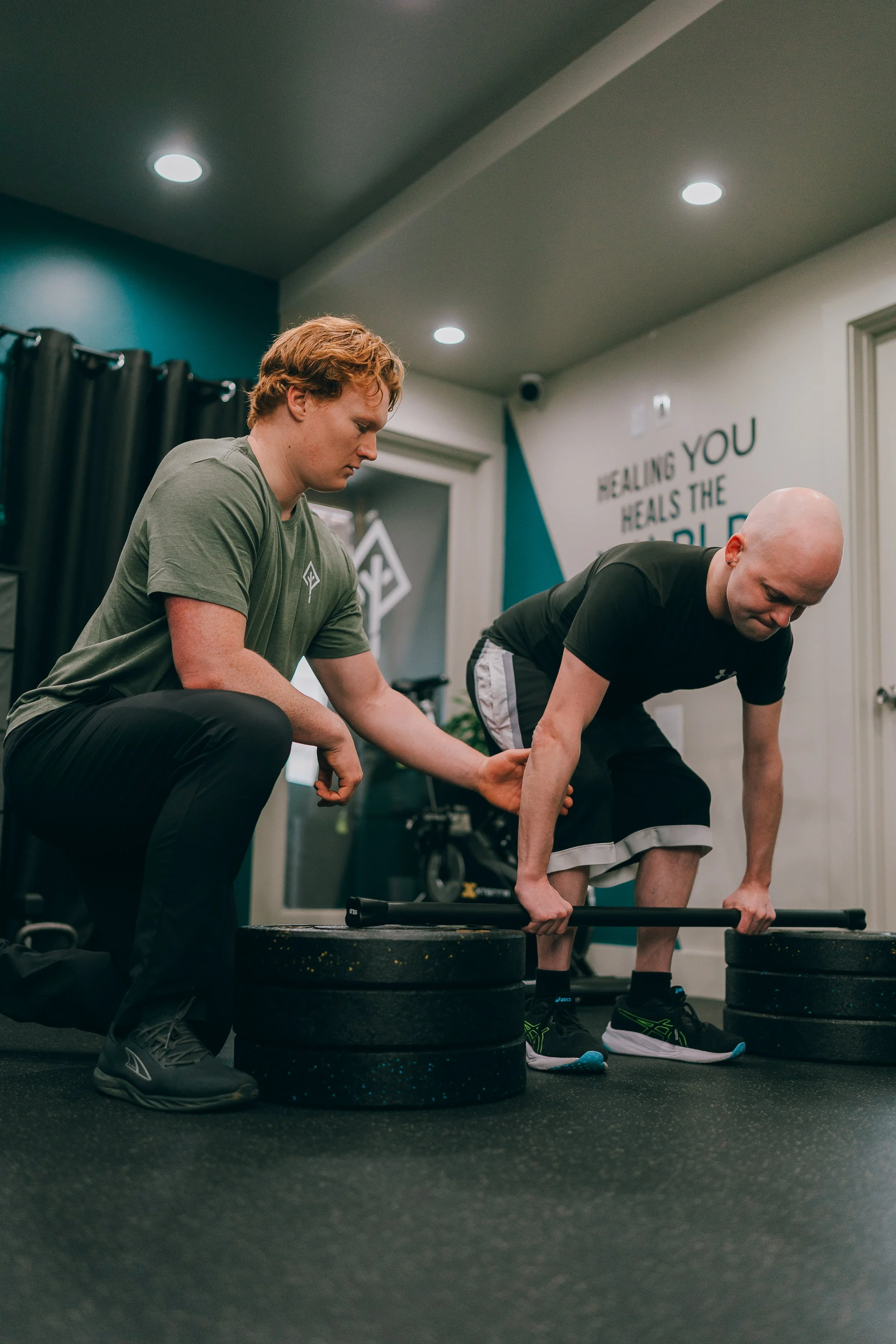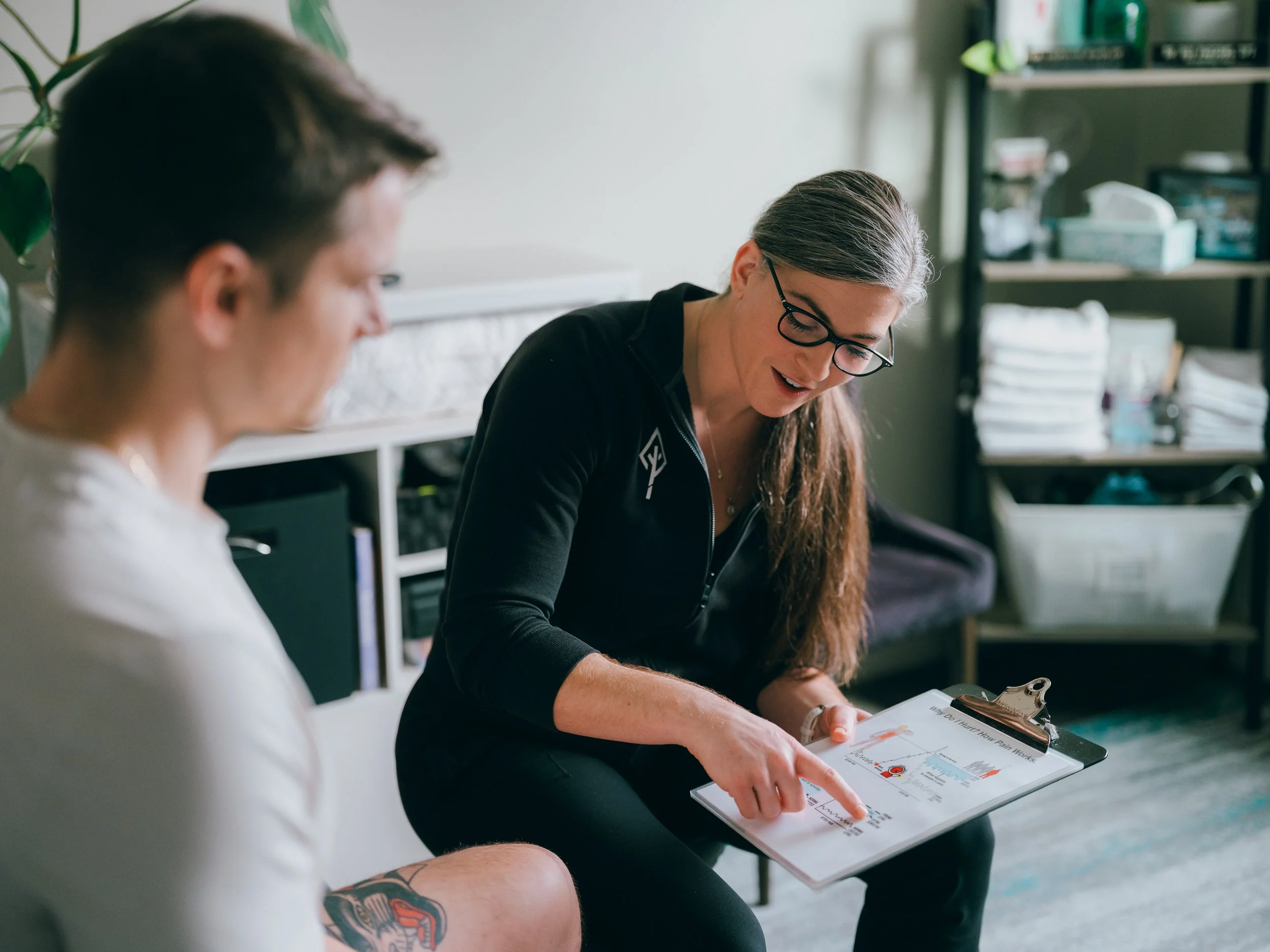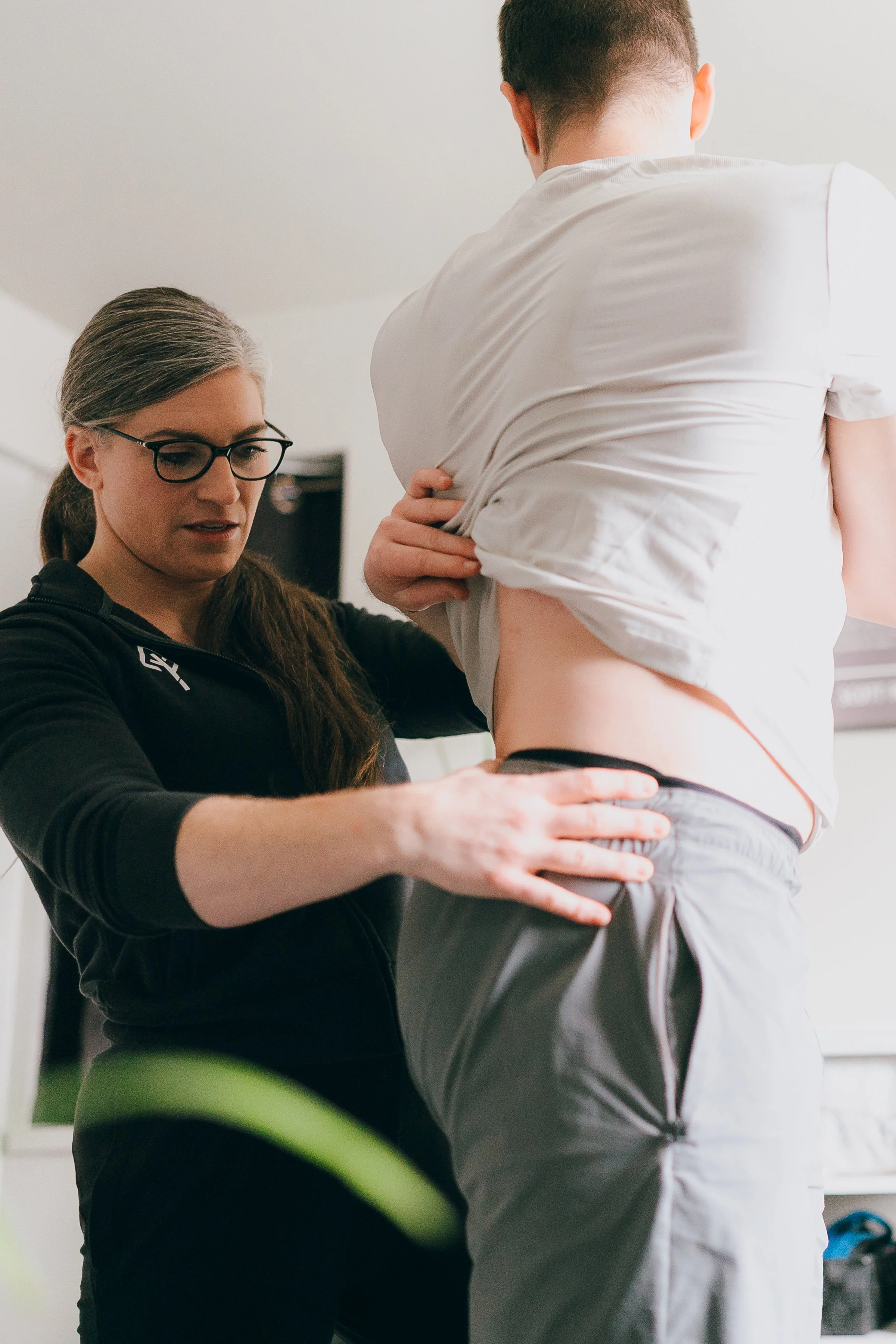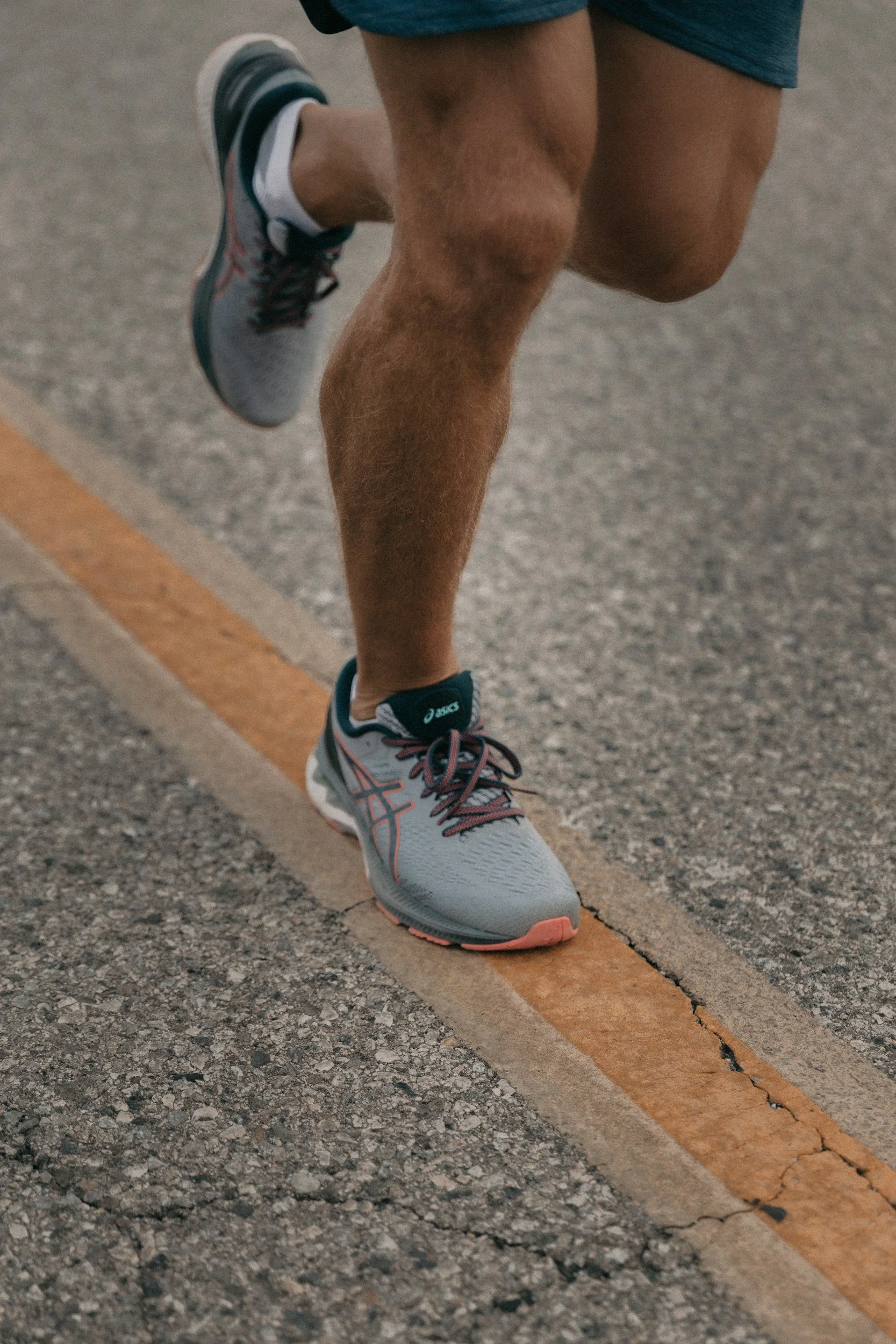
RISE UP Blog
We share evidence-based information, reflections, and expertise in wellness, longevity running, pelvic health, lifting, dance, chronic pain, and being the best version of YOU that you can be!

How to Choose the Right Physical Therapist in Seattle
At RISE Performance & Health, we understand your frustration. This guide will walk you through what truly matters when choosing a physical therapist, so you can make an informed decision and start your journey toward lasting recovery.


Physical Therapy in Seattle: A Complete Guide to Recovery and Performance
If you're an active adult in Seattle, you know the unique challenges of staying at your peak. Whether you're hitting the trails, dominating the CrossFit box, dancing on stage, or navigating the demands of parenthood, pain and injury can derail your progress and passion

Strength vs. Endurance: Finding the Right Balance for Seattle Runners
Many runners believe the key to getting faster and going farther is to simply log more miles. While endurance is essential, relying only on long runs can lead to overuse injuries, fatigue, and performance plateaus.

Strength Training for Seattle Runners: What Makes RISE's Approach Different
As a runner in Seattle, you know the unparalleled feeling of a crisp morning run along Lake Union or a challenging trail run through Discovery Park.

Glute Strength for Runners: Your Secret Weapon Against Injury
Every dedicated runner in Seattle shares the same goals: to run faster, build endurance, and most importantly, stay off the sidelines with an injury.


The Science Behind Strength Training for Runners: What Research Supports
For years, many runners believed the best way to improve their performance was to run more miles.

Strength Training for Runners in Seattle: A Science-Backed Approach to Longevity
For years, runners have been told that if they want to get faster, they simply need to run more. But science — and the experience of high-performing athletes — tells a different story.

Pain in the Brain!
How does pain work?
According to the CDC, about 21% of adults are experiencing chronic pain in the US. As a provider who works in the space of changing chronic pain, understanding HOW pain works is KEY to living a limitless life!
Pain is not just the result of a stimulus or injury. It is routed, processed, and filtered through various parts of our brain in attempt to interpret the signals. Which means there are a lot of influences that can change what I like to call the "dials" of pain intensity.

Women Build A Healthier, Wealthier World
As we celebrate Women’s History Month this March, we want to elevate how women are an essential backbone of families, communities, and the global health economy, despite historical and present day inequality.
Women make up well over half the global workforce in healthcare, serving as doctors, nurses, caregivers, and public health professionals. They are delivering the majority of our essential services, particularly in underserved communities.
Women are often the primary caregivers within families directly supporting our more vulnerable populations like children and the elderly. Thus, their own access to healthcare and education directly impacts family health outcomes.
Given this role, investing in women’s health, education, and empowerment immeasurably shapes a healthier and more prosperous world.
Let’s take a look at some examples as to how…
When communities, states, and countries invest in women's reproductive health, health statistics for both mothers and children improve, maternal mortality rates reduce, and women make informed decisions about their families that results in reduced childhood homelessness and disease rates.
Research shows a clear link between women's economic participation and national economic growth. Studies estimate that closing the gender gap in the labor force could add trillions of dollars to the global economy.
In regions where there is an increase in women leadership and business ownership, we see parallel trends of a more innovative and resilient local economy.
Educated women tend to reinvest their earnings BACK into their families and communities, leading to improved education, healthcare, and overall well-being of a local population.
Let’s invest in women! It literally changes the world when we do.

How to change our habits to be healthier…for REAL!
Changing habits can feel insurmountable at times, especially when it comes to adopting healthier behaviors.
Research in the field of psychology and behavioral science sheds light on WHY habit modification is sooo complex. We now know that behavior change is HIGHLY individualized! Studies have shown that personality traits and stress tolerance levels vary among individuals, and these strongly influence our ability to make lasting changes in behavior. This variability highlights the importance of a personalized approach for us to develop healthier habits!
The allure of immediate rewards often competes with the long-term benefits associated with healthier behaviors, making it harder for us to stay committed to our goals. Thankfully, there’s hope! Research has also identified some top consistent effective strategies that cater to individual needs and motivations. I want to share two of those strategies with you that I think are often missed. Number 1: Identify the intrinsic reason behind the change you want to make! It is important that this goes beyond superficial goals like weight loss or physical appearance. By connecting with deeper motivations, such as fostering relationships with loved ones or pursuing personal growth, we will cultivate a stronger sense of purpose that sustains efforts over time.
Number 2. Get support and have strategies when your stressors are high and stress tolerance is low. Having someone to encourage us when we are struggling and utilizing coping strategies during periods of high stress can enhance resilience and facilitate habit formation. We need these external support systems because elevated stress directly effects our decision-making, often causing us to make poor health decisions.
By incorporating these evidence-based strategies into daily practice and staying mindful of personal motivations and stressors, we will see a shift in how our behaviors start to change!
I hope you take these next 5 minutes time to identify your WHY, your accountability person, and a strategy you can use when you are tapped out. Write these down. Look at them every day. And watch your behaviors change more easily!

Love and Longevity…it’s real!
Giving LOVE Makes Us Live Longer!
Embrace this week of LOVE for the sake of your health.
In honor of Valentine's day, let's learn how love changes our lifespan, which "kind", and by how much!
It's true. Love helps us live longer! But maybe not the kind of love you're thinking. Check this out…
Research shows that strong interpersonal relationships predict a 50% increase in longevity! But what does that mean? Studies identified that this increase was not being 'in love' or receiving love from others, but GIVING love!
That could come in the form of act of service to a partner, volunteering your time to others, assisting someone in need, or thinking kind thoughts toward others. So even if you are single and feeling the pressure of LOVE week...keep in mind giving love to others is available to you at ALL TIME, and contributes to a longer, healthier life! And if you aren't single, please love on your partner every day...you will live longer for it. :)
In case you’re not yet convinced, here’s a little more data for ya. A large scale study of >11,000 adults over the age of 50 published in 2021 showed that participants who experienced both loneliness and social isolation showed signs of advanced biological aging including chronic inflammation. cognitive decline, early death, and increased disability. Sign me up for bingo and the soup kitchen, ready or not, here I come! And apparently, here I will stay. ;)

Celebrating Black History in Physical Therapy
Today, the field of physical therapy is a doctoring profession that allows physical therapists to have autonomy as health care providers and an education that prepares them to be true experts in musculoskeletal and movement medicine.
Dr. Mary McKinney Edmonds, PT, DSc, PhD, FAPTA
But we would not be able to deliver our high-level care, diagnoses, and expertise without this black woman pioneer, Dr. Mary McKinney Edmonds (1932-2017). Dr. Mary founded the Physical Therapy program at Clevland State University and spear-headed the autonomy in the field to advance rehab specific research and to shift physical therapy education to the doctorate degree.
She boldly advocated for minority and women students and faculty in the field of physical therapy given the extreme lack of minorities within the profession. It is clear we must continue the work she started as minorities make up less than 23% of the workforce among physical therapists in the US!
Dr. Efosa Guobadia, PT, DPT
That brings us to the current landscape of physical therapy and diversity, I want to highlight an incredibly influential physical therapist, friend, and global citizen, Dr. Efosa Guobadia.
Dr. Efosa has made a profound impact in the field through starting programs and businesses that highlight service to the world as core tenants of our profession. He founded PT Haven, an online resource for rehab information, and is the co-director of Global PT Day of Service. He also founded a non-profit called Move Together which has been instrumental in empowering clinicians to create positive change in their communities and in other communities around the world. Move Together has helped build multiple rehab clinics internationally to provide free care to those in need. Efosa’s mission is to “increase access to quality rehab medicine around the corner and around the world.”
Our nation and our world has historically erased the contributions of black game changers, scientists, and pioneers. I want RISE to be a part of changing that by celebrating and elevating the work of black men, women, and other minorities of which our country was built on. I thank them for their contributions in the face of adversity, and want to emphasize the evidence that we need each other to come together to make this world a better place.
Learn more about Global PT Day of Service and Move Together and help support Dr. Efosa’s vision of inclusion!

Getting those spins on point!
How controlled are your spins? Are you leaving yourself at risk for injury?
If you are a professional dancer, a performer, a weekend social dancer, a social media sensation, or simply dance for a hobby, improving your dance skills is a constant. Especially SPINS! Not only do we need to be working on the efficiency of our spins for our own performance and to reduce risk of injury to ourselves, but also for the sake of our dance partners.
Leads, follows, solo dancers…we all need to learn how to control balance and momentum in order to nail those reaches, spins, kiz tricks, and pirouettes. When we first learn spins we are all over the place, can I get a witness? So we practice keeping our center of mass over our feet, keeping free limbs close & controlled, spotting in front of a mirror, and subconsciously calculating force, direction, and friction on the floor. But what about what we can do inside our bodies to help protect ourselves from injury and perfect those spins, tricks, and all things on the dance floor?
While there are sooo many things to focus on, improving core strength takes it for the win!
In order for our bodies to create that perfectly controlled circle, our abdominal and core muscles must work to achieve the rotational momentum necessary along with our hip rotator muscles and stabilizers. Think about it, how else could we spin without pushing off of anything!? Try it. Stand on one leg, then without pushing off with your other leg…spin! See how your upper body turns first? It all stems for the CORE (aka. our trunk muscles…and how they coordinate with our hip muscles)!
Ok, blah blah blah…so why does this matter? Research shows that dancers (both recreational dancers and performers…especially performers with how much y’all put your bodies through) who demonstrate poor core and abdominal strength are at a higher risk of injury and actually sustain injuries more often (Russell, JA. 2013). Yikes! And you thought sit ups were over rated. Research also shows dancers who perform core exercises 3 days per week can significantly improve balance and performance with spins, reaches, relevé, and pirouette within 8 weeks of starting core training (Watson et al. 2017). So I think we have a real clear sign for ALL of us to immediately start improving our spin performance and reduce injury, both on and off the dance floor, just by hitting some sit ups and planks weekly. Just like that!
You may be thinking, ‘So what do I do Dr. Steph?’, glad you asked! Let’s break it down with some examples to strengthen together…
